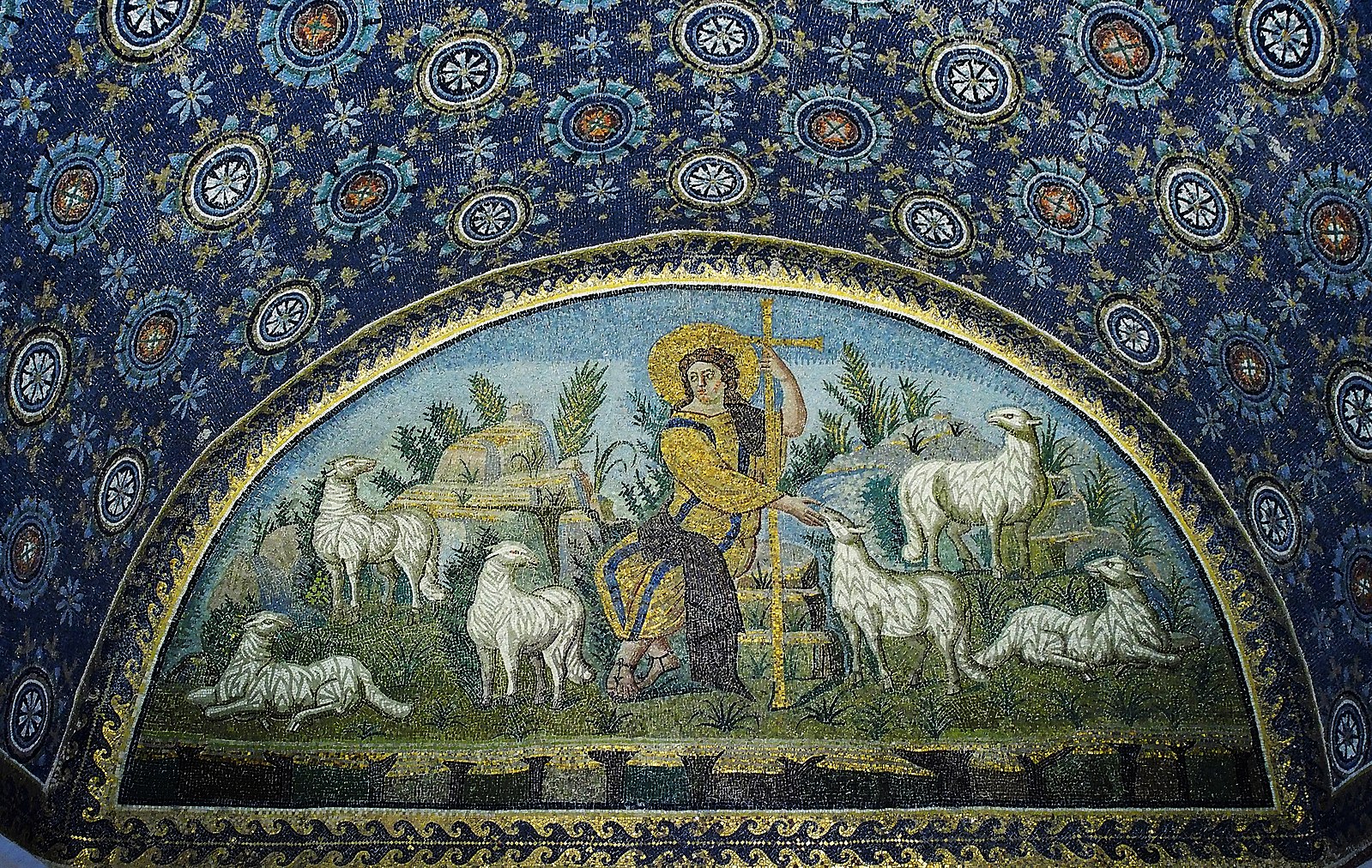 |
| Jesus as the Good Shapherd |
Here’s another objection to becoming a practicing Christian from my 1982 notebook:
Objection: How is one to choose among the various religions? If God exists and is merciful, or even just, how can he permit the existence of a thousand false religions and only one true one? And then leave us with no clear basis on which to distinguish one from the other? And then say that anyone who makes the wrong choice is damned to hell?
To which I respond:
Religions differ far less than this supposes. They agree on most things. It is therefore reasonable to assume that a firm commitment to any religious path is sufficient, eliminating the problem. I hold that this is necessarily so, given these premises. God would not allow the persistence of a faith that did not lead to heaven if practiced in good faith. The New Testament itself testifies to the continuing validity, for example, of Judaism.
Monotheism is not tolerant of polytheism, it is true, and vice versa. The problem with polytheism is the “in good faith” part. Monotheism is ethical; polytheism is not. It does not believe in objective morality.
So why did God allow polytheism to persist? He does not, as a historical fact, as soon as a clear monotheistic alternative appears in any society.
Most religions do not believe that anyone who does not follow them will end in hellfire. Only some Protestant groups do, and some Muslims. Buddhists or Hindus do not. Neither do Catholics. While they hold Christianity to be, of course, the completed truth, anyone who is not aware of this is not punished. So long as their ignorance of it is not their own fault—that is, so long as they have been sincerely seeking truth.
The phrase “no salvation outside the church” is often quoted. But its sense is ambiguous. For after all, what is “the church”?
John 10: 16: “I have other sheep that don’t belong to this fold. I must lead these also, and they’ll listen to my voice. So there will be one flock and one shepherd.”
He might well here be referring to non-Jews, gentiles, as not being members of the flock to which he is speaking. Or he might be speaking more generally, of any visible or formally constituted flock. The true church is the “communion of saints.” This is obviously not coterminous with the people in attendance at a mass, or with the college of bishops. It is the confraternity of those who seek the good, the true, and the beautiful.
And when Jesus says he is the gate through which such souls must enter, surely he means the Logos, the Way, the Truth, and the Light, not that souls pass though his physical body somehow crafted into a gate. That is, one enters heaven by seeking the true and the good and the beautiful, wherever this leads, and despite personal sacrifice.
That said, it is an important step to tie oneself to a particular spiritual discipline and a particular objective set of moral standards. Without this, it is too easy to rationalize everything to your own advantage, and make yourself God. This, perhaps, is the “communion” part of the “communion of saints.”












No comments:
Post a Comment